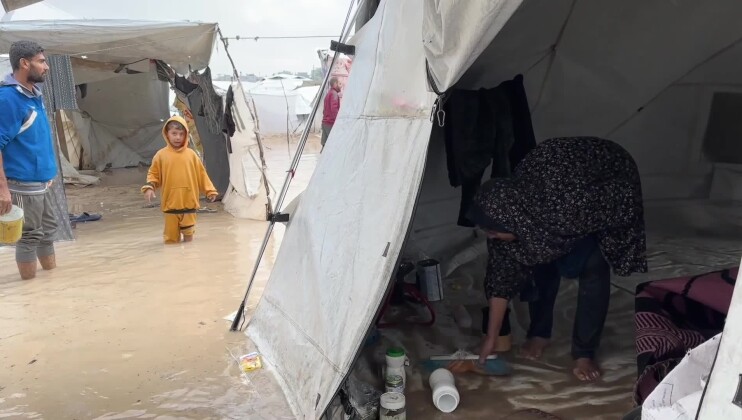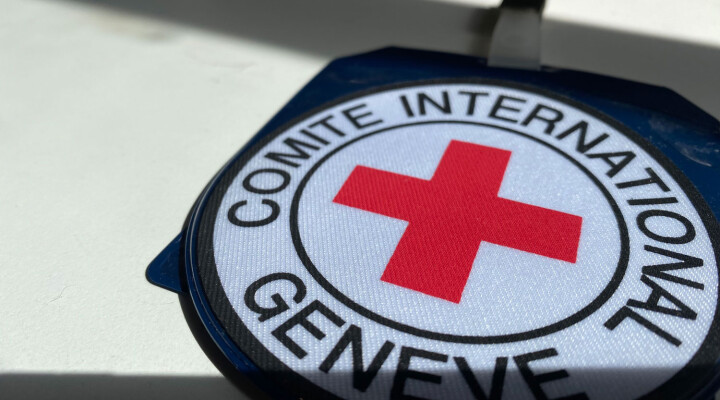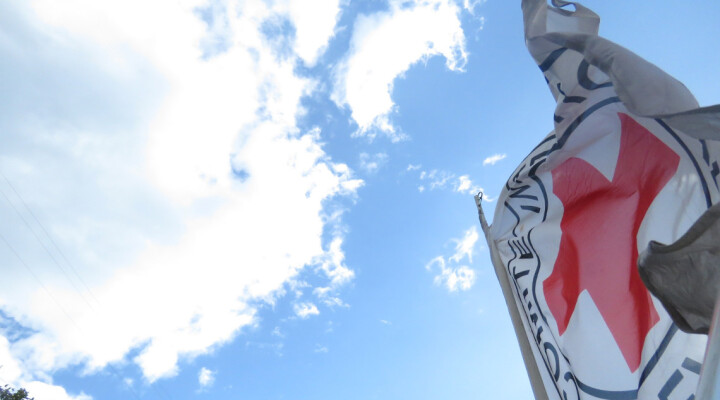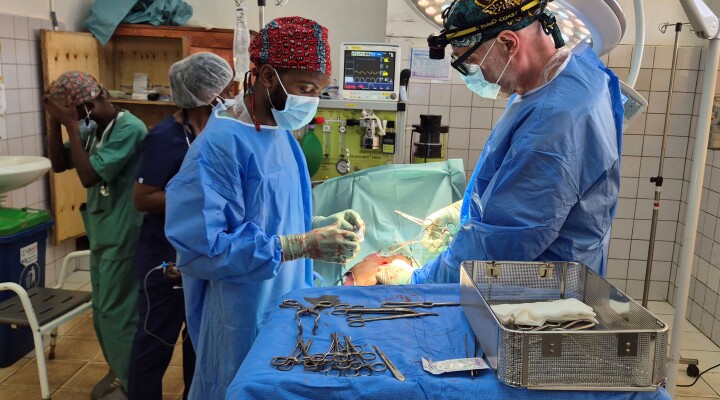Afghanistan: a statement from Robert Mardini, the director-general of the ICRC
The ICRC is relieved to see Kabul avoid what could have been devastating urban warfare, but we remain mindful of the thousands of civilians wounded and displaced in recent fighting in other urban centres. The ICRC is determined to stand by the Afghan people and help men, women and children cope with the unfolding situation.
Afghanistan is in the middle of a transition that is difficult for Afghans, and for us, to predict the outcome of. But we know that humanitarian needs will remain high.
Since 1 August, more than 7,600 patients wounded by weapons have been treated at ICRC-supported facilities around the country. More than 40,000 people wounded by weapons have been treated at ICRC-supported facilities in June, July and August.
Our medical teams and physical rehabilitation centres expect to receive patients for months and years to come as they recover from wounds from explosive devices that litter the country, many of them newly laid in recent weeks. It is heartbreaking to see our wards filled with children and young men and women who have lost limbs.
The humanitarian needs in Afghanistan have been high for too long, and those needs, especially in recent years, have not always been met completely. The ICRC currently has a funding shortfall of about 30 million Swiss francs ($33 million), out of a budget of approximately 79 million Swiss francs ($86 million). We appeal to donors for immediate additional funding to support our work, including in the medical field and at our physical rehabilitation centres.
The International Committee of the Red Cross has been present in Afghanistan since 1987. ICRC staff have worked to protect and assist those in need in Taliban-controlled areas for years and we have open channels with local and high-level leaders. We will continue to work hand in hand with the Afghan Red Crescent Society to help those whose lives have been scarred by war.
Najum Iqbal (English), ICRC Geneva, nulsaqibiqbal@icrc.org , +41 79 217 32 17
Florian Seriex (French), ICRC Geneva, fseriex@icrc.org, +41 79 574 06 36
INTERVIEW TRANSCRIPT
Location: Geneva, Switzerland
Length: 2.40
Format: mp4
Camera: Caitlin Kelly
Editor: Caitlin Kelly
Filming Date: 16 August 2021
Copyright: ICRC access all
On Screen Credit: ICRC or logo
Name and Title: Robert Mardini, Director General ICRC
[00:00:00 – 00:00:14]
Well, the situation is still very fluid as we speak. There has been very intense fighting over the past days and it will take us time to realise the magnitude of the humanitarian needs.
[00:14 – 00:37
The fact that fighting has stopped is positive news for civilians. It’s a good respite, but the humanitarian needs are likely to be there and to increase.
So the ICRC is present in Afghanistan and is committed and determined to stand by the Afghan communities and help them in the various needs.
[00:00:38 - 00:01:17
Well, the consequences of fighting on civilian population, the wounded people, those amputees who needs to be fitted. These takes years, if not decades, of support. Our physical rehabilitation programmes in Afghanistan is a testimony to this, where we’re still supporting many of the wounded of past conflicts. So this is a huge challenge going forward and we are committed to helping those people who have been injured in the recent fighting.
[00:01:17 – 00:01:49]
Well, the ICRC is in contact with all parties to any conflict and this is no exception in Afghanistan.
We have a regular dialogue with the Taliban at leadership level, but also at a local level, and this enables us to carry out our humanitarian work. This enables us to support hospitals. This enables us to evacuate wounded people day in and day out.
[00:01:50 – 02:17 ]
To put things into perspective, let’s not forget that Afghanistan, even before this recent escalation, was sadly known to be the most deadly context for civilians.
When I visited in November last year, I visited two hospitals in Ghazni, one in an area controlled by or run by the government and the other one in areas controlled by the Taliban.
[00:02:17 – 00:02:38]
And the directors of both hospitals were struggling with the same challenges, no electricity, no water, no fuel to run a generator, no medical and surgical equipment. And the same level of frustration, not being able to save lives of civilians who were caught in the line of fire.



